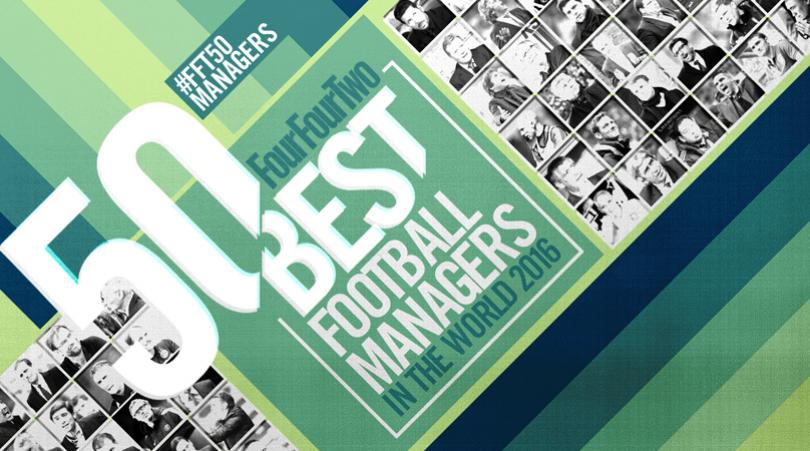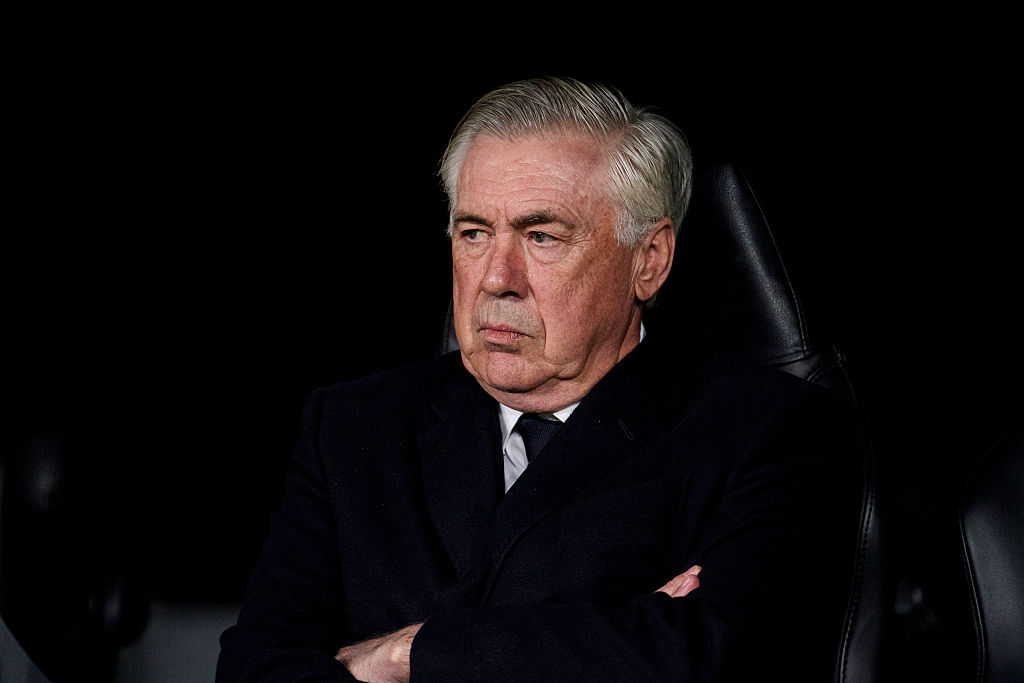5 big Premier League players facing make-or-break seasons at their current clubs
Alex Hess looks at a clutch of stars who'll need to prove their worth in 2016/17
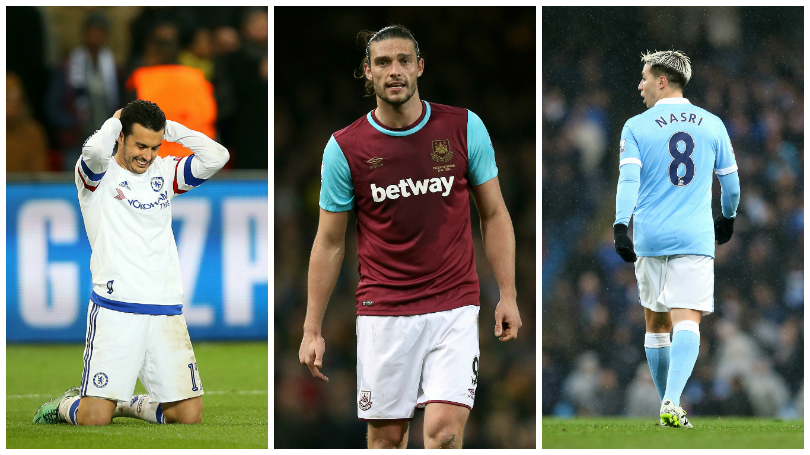
1. Andy Carroll (West Ham)
If Carroll doesn’t keep himself fit this season, it’s plausible he’ll stop being considered a viable first XI player and be forever slapped with the unwanted label of ‘useful Plan B’
It’s a minor tragedy that Carroll setting foot on a Premier League pitch is only a semi-regular occurrence: the Geordie hurling himself forehead-first at an inbound cross isn’t just one of the most glorious sights in the division, it’s one of the most effective too.
Expectations of Carroll may have been skewed somewhat by his early-career purple patch as well as that transfer fee (cheers, Kenny) but broadly speaking, he has little to prove to anyone regarding his capacity to brutalise top-flight defences with gay abandon.
He does have plenty to prove regarding his capacity to keep himself intact in the process. For a number of years, Carroll’s perennial fitness issues tended to be euphemistically chalked down to ‘lifestyle’. Now, the worry is less that he can’t resist the urge to sink a vat of jagerbombs each weekend and more that he simply may not have a sportsman’s body – a considerable irony given that a fit and functioning Carroll is perhaps the most physically terrifying striker in the division.
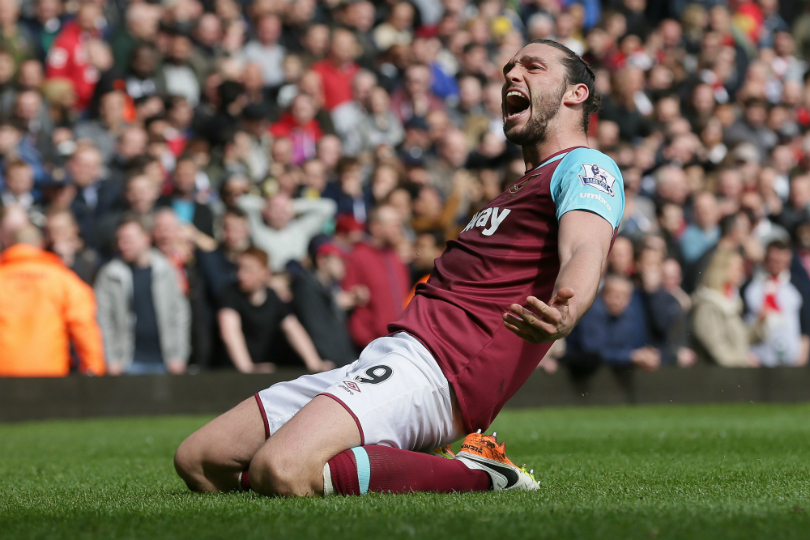
Once England’s next great hope, Carroll’s now no spring chicken. He is 27, and a total of 143 league starts is a seriously meagre number for a player who’s rarely been anything other than first choice throughout his club career (team-mate Aaron Cresswell, a year his junior, has made roughly double that). His effectiveness means West Ham are unlikely to call time on Project Carroll just yet, but that patience won’t last forever.
If he doesn’t keep himself fit this season, it’s plausible he’ll stop being considered a viable first XI player and be forever slapped with the unwanted label of ‘useful Plan B’.
2. Pedro (Chelsea)
Get FourFourTwo Newsletter
The best features, fun and footballing quizzes, straight to your inbox every week.
Seven years ago, Pedro, a seemingly unremarkable winger in Barcelona’s B team, was plucked from relative obscurity by novice coach Pep Guardiola and given a run alongside Lionel Messi & Co. Twelve months later, he’d played a starring role in treble and World Cup triumphs, and managed the remarkable record of being the only player to have scored in six competitions in a single season (his side won all six, too). It’s fair to say there have been worse debut seasons.
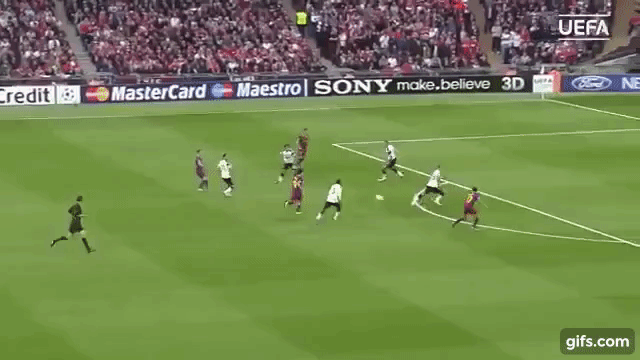
Pedro opened the scoring in the 2011 Champions League Final
Now though, the scampering Spaniard’s stock seems to have plummeted just as quickly. First he fell victim to Barcelona’s adoption of a (whisper it) galacticos-style transfer policy, where he dropped behind Neymar and Luis Suarez in the food chain, before arriving at Stamford Bridge with impeccably bad timing, just as Jose Mourinho was commencing his scorch-the-earth routine.
Much of his recent woes, then, have been out of his hands. And yet there’s no denying that even on his owns terms Pedro was a huge let-down last season, his eight goals and generally unimposing displays doing little to repay what looked like a bargain £21m transfer fee.
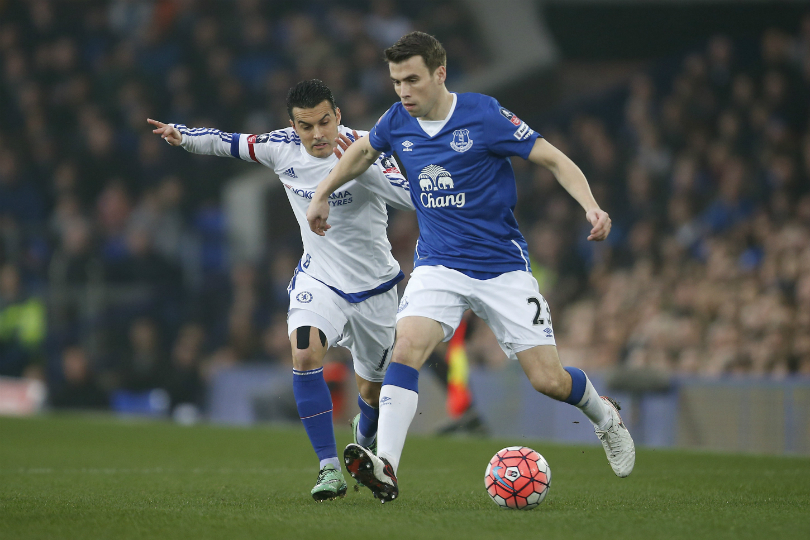
Because his career took off comparatively late (he was 22 when he scored his first senior goal) it’s easy to think Pedro is younger than he is. In reality, he will be 29 this week – and one suspects that another underwhelming season could spell the end for him at the elite level of club football.
3. Alex Oxlade-Chamberlain (Arsenal)
Few people doubt Oxlade-Chamberlain is a good player. The problem is, even fewer could tell you what exactly he’s good at
Unlike the above names, Oxlade-Chamberlain is hardly at the age where his career hangs in the balance. But he will turn 23 the day after Arsenal’s opening game of the season, and at this stage it’s surely not too much to ask for a player of his quality to have settled on a defined position, or at least a clear function within his team. His versatility is fast becoming more curse than gift.
Even if he hasn’t marauded onto the scene as his early Arsenal showing suggested he might (remember the 18-year-old Ox orchestrating proceedings against Milan?), few people doubt he is a good player. The problem is, even fewer could tell you what exactly he’s good at.
He’s a more-than-competent passer, ball-winner and ball-carrier – and he can strike a ball, too – without being exceptional at any of those skills. The player himself has always insisted he is a central midfielder, and yet nearly all his outings have been out wide.
He certainly doesn’t have the touchline-hugging instincts of a natural winger, nor the goal-poaching ones of a wide forward. But then he also lacks the silk and finesse of a central playmaker, and the quick-thinking craft of a deep-lying midfielder. Most of all, he lacks goals – for an attacking player, seven league strikes in five seasons at Arsenal is a pretty grim return.
There remains plenty of time for all this to be addressed; 23 is still young. But you wonder how keen Arsenal would be to persist with Oxlade-Chamberlain after another season of faintly disappointing drift.
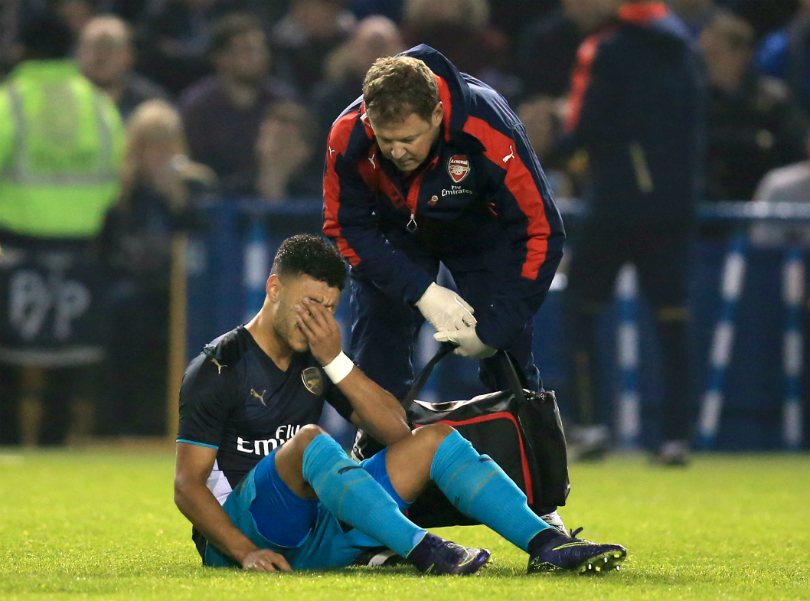
It’s not panic stations yet, but Arsenal’s inadvertent utility man could certainly do with using the coming year to guide his game, and by extension his career, in one clear direction or another. In a sport increasingly populated by specialists, the jack of all trades is acquiring an ironic uselessness.
4. Marouane Fellaini (Manchester United)
Cast your mind back a year or two further and you’ll recall Fellaini was one of the most magnificently effective players in the country
If you had only ever seen Fellaini play since summer 2013, you’d be hard pressed to find a single shred of evidence that this flailing mass of elbows, shins and bobbly hair belonged anywhere near the top level of club football.
But cast your mind back a year or two further and you’ll recall that Fellaini was one of the most magnificently effective players in the country. The term ‘unplayable’ has long since become near-meaningless cliché but, deployed by David Moyes in that ingenious target-man-cum-floating-No.10 role in his latter Everton days, Fellaini was precisely that. He triggered havoc among every defence confronted with his anarchic penalty-box presence. Tiki-taka it was not, but there’s good reason Fellaini cost United the heady sum of £27.5m to prise away from Goodison Park.
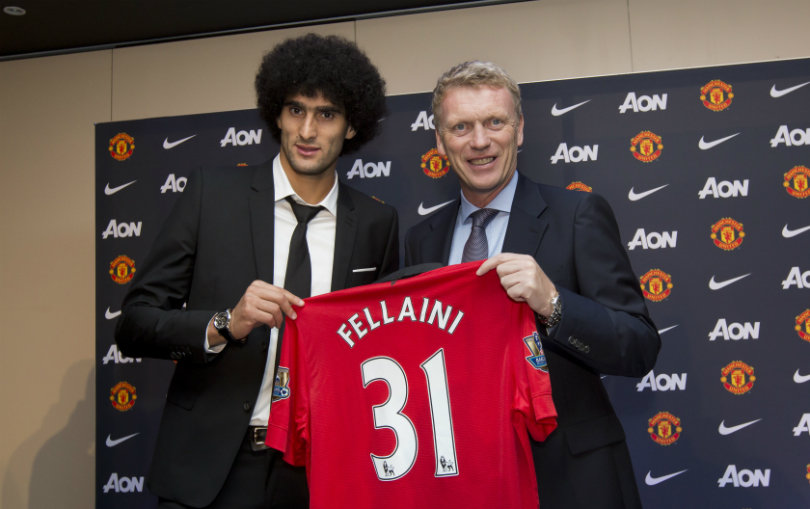
And yet in a bizarre feat of extended tactical idiocy, the Belgian has spent three years at United being fielded largely as an orthodox central midfielder – a role that not only bears little relation to the one that convinced United he was worth shelling out for in the first place, but also one which seems tailor-made to accentuate his very worst limitations, namely a maddening ponderousness on the ball and a marked lack of mobility off it.
Fellaini has not been blameless in his failings at United, but it’s been hard not to feel sorry for him at times, especially given how he’s been cast as the on-pitch poster boy for the club’s regression. Yet despite his three seasons of misery, whispers of him being shepherded out the back door this summer have been conspicuously non-existent.
There’s a player in there somewhere – a stormingly good one – and if there’s one manager who can find a use for and breathe new life into a underachieving, limited but physically daunting squad player (Sulley Muntari, anyone?) it’s the new boss. But Fellaini’s already on borrowed time: it’s very much now or never.

5. Samir Nasri (Manchester City)
While the it’s generally the names of Sergio Aguero and Vincent Kompany whose absence from the teamsheet provoke howls of despair among Manchester City fans, and David Silva who’s seen as the side’s attacking alchemist, it’s less appreciated just how important a cog Nasri is to a slick-running City team.
Like Aguero and Kompany, the Frenchman is another treatment-table regular who has been central to the best City sides of the Mansour era – be it the one that clawed its way, Terminator-like, to the title at the business end of the 2011/12 season, or the one that tucked away 102 goals en route to the same trophy two years later. It’s perhaps no coincidence that City’s best form, certainly from an attacking point of view, has tended to dovetail rather precisely with the Frenchman’s.
Of course there’s a serious correlation/causation question here – the recurrent criticism of Nasri has been that he performs well enough as part of an in-form side but goes missing when his team is struggling and need him most.
The instinct as Guardiola takes over is to wonder exactly how the Catalan’s inexorable demands for training-ground toil and relentless self-improvement will marry with Nasri’s rather more laissez-faire approach to his trade. Look a little closer, though, and perhaps Nasri’s brand of quick-witted, positionally ambiguous playmaking may in fact be right up Pep’s alley.
A silky creator who likes to drift in off the left flank, it’s no stretch to compare Nasri to former Pep protégé Andres Iniesta in approach if not in ability – which isn’t to say Nasri’s at all short of the latter, but solid proof that he’s no fairweather performer will be needed if he’s to secure his new coach’s affections.
"One thing that I have learned is that you should do everything to become successful because you don't want to have any regrets in your life," Nasri, who’ll turn 30 next summer, told FourFourTwo recently. "Sometimes I look at myself and think I could have done better." There’s time to rectify that yet – but not much.
